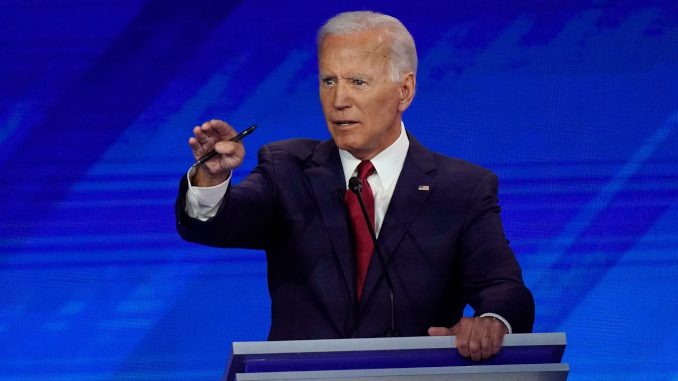
By John Friend
At a speech in front of an Atlantic Council meeting in 1997, then-Senator Joe Biden openly stated what many other geopolitical thinkers, foreign policy experts, and academics specializing in Russian affairs have repeatedly warned about for decades: that an expansion of NATO in Eastern Europe towards Russia’s border would be viewed as an existential threat to the Russian government.
Despite these warnings and this clear understanding of the dangers and risks associated with NATO expansion, that is the precise policy that the increasingly provocative and belligerent security organization, led by the United States in its effort to exert and maintain its power and influence in Europe, has pursued since the fall of the Soviet Union.
“I think the one place where the greatest consternation would be caused […] would be to admit the Baltic states now in terms of NATO-Russian, U.S.-Russian relations,” a much younger and coherent Biden stated at the time, referring to NATO courtship of the Baltic states of Estonia, Latvia and Lithuania, which were admitted into NATO in 2004. “And if there was ever anything that was going to tip the balance, were it to be tipped, in terms of a vigorous and hostile reaction – I don’t mean military – in Russia, it would be that.”
These facts and perspectives have been entirely absent from mainstream media coverage of the ongoing Russia-Ukraine conflict. Additionally, the prevailing political discourse in U.S. politics has ignored and dismissed this once widespread and legitimate understanding of foreign relations, particularly U.S.-Russia relations. Instead, any deviation from the mainstream narrative demonizing Russia while praising Ukraine and U.S. leadership has been denounced as traitorous with calls for censorship and deplatforming of dissidents.
“This is a fact nobody will confront,” independent journalist and media critic Glenn Greenwald recently noted on Twitter. “That Russia (not Putin, but the Russian political class, including Putin’s critics) legitimately perceived NATO expansion as threatening wasn’t invented by RT & Grayzone last week, but was the widespread view of top US officials for decades.”
This is the fact nobody will confront. That Russia (not Putin, but the Russian political class, including Putin's critics) legitimately perceived NATO expansion as threatening wasn't invented by RT & Grayzone last week, but was the widespread view of top US officials for decades: https://t.co/hZ9UIFGZgt
— Glenn Greenwald (@ggreenwald) March 5, 2022
Indeed, prestigious minds and respected experts such as George Kennan, Henry Kissinger, John Mearsheimer, former U.S. Ambassador to the Soviet Union Jack Matlock, Jr., former Secretary of Defense William Perry, Noam Chomsky and many others – including the current president of the United States – all clearly recognized and understood the threat NATO expansion presented to Russia.
Most fascinating thing about the Ukraine war is the sheer number of top strategic thinkers who warned for years that it was coming if we continued down the same path.
No-one listened to them and here we are.
Small compilation 🧵 of these warnings, from Kissinger to Mearsheimer.
— Arnaud Bertrand (@RnaudBertrand) March 1, 2022
George Kennan, one of the most respected American diplomats in history and an architect of America’s strategy of Soviet containment during the Cold War, described NATO expansion into Eastern Europe as “a tragic mistake.”
“There was no reason for this whatsoever,” Kennan explained in 1998 as NATO began its first expansion efforts in Eastern European nations formerly aligned with the Soviet Union under the Warsaw Pact. “No one was threatening anybody else. This expansion would make the founding fathers of this country turn over in their graves.”
Kennan noted that the expansion would provoke “a bad reaction from Russia,” a fact obvious to any objective observer.


